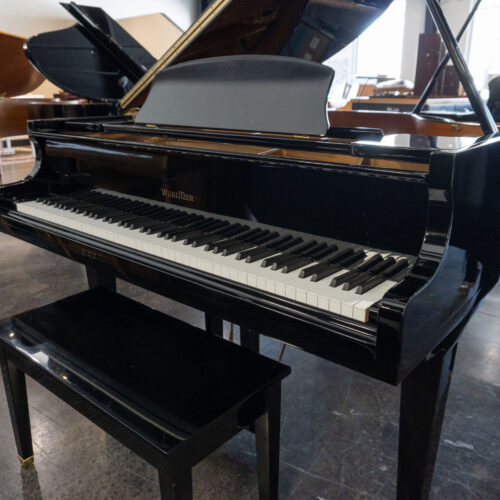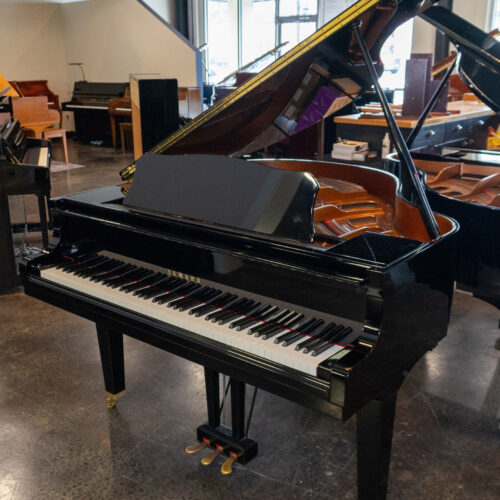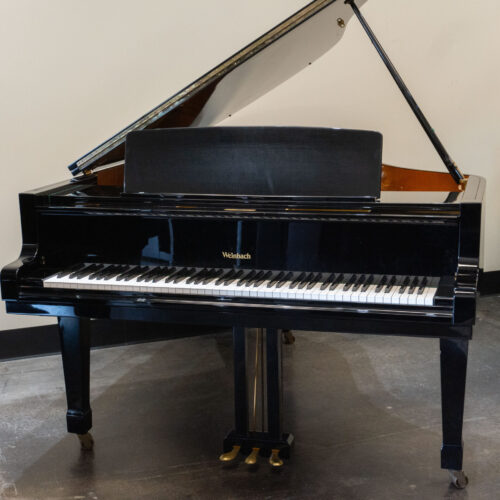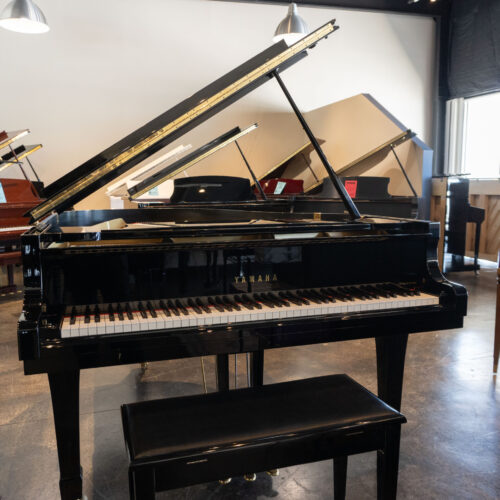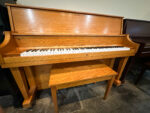Making sure your piano playing posture is essential to how good you play the piano. As you may know, slouching is a big no-no. But, there are a few other things you may be doing that are affecting your posture, and you can fix them quickly. Here are 4 things affecting your piano posture:
1. The Bench
You may have a bench or not. Believe it or not, the bench you use is an integral part of playing the piano, and it’s essential to find the best one for you. A great option is to get an adjustable bench, where you can change the height to adjust to the player. Having the correct height bench ensures your hand and wrist positioning are proper. The right bench and height will avoid stress injuries.
The bench you use is what gives you stability. The bones you use to sit (at the bottom of your pelvis) give you the strength to play forcefully or gently. Standing up while playing can also be harmful to your body since you’re looking down at the piano and bending your arms in an awkward position to play the piano.
Another problem is using a chair in place of a bench. It may not be the worst option, but this can also negatively affect your posture, particularly if you tend to recline into the backrest while playing. With a bench, you won’t have the option to sit-back. Instead, you’ll be able to stabilize your body and connect to the piano.
2. Physical Exercise
Yes, physical exercise matters. Playing the piano engages the smaller muscles in your body and your upper body and spine. If you find yourself playing for long periods, you might feel your body feeling tense. Exercising will allow you to release any tension from playing the piano and stimulate circulation.
Physically exercising regularly will help you in exercising the specific muscles you use repeatedly to play the piano. It’s essential to vary your workout so you can avoid tension from over-strengthening particular muscles.
3. Not Using a Footstool
Not using a footstool can pitfall the posture of a shorter adult or child playing the piano. Having your legs dangling from the piano bench can also be harmful to you. If your feet can’t touch the ground, you’re losing a place to release your weight unto while maintaining an upright posture.
Being upright at the piano starts from the ground, and an adjustable footrest is an excellent solution. Not using a footstool when can cause you to strain your upper body and even your legs. To avoid this, use a footstool if needed.
4. Session Length
Another factor that could be affecting your piano playing posture is how long you’ve been seated. Sitting down for long periods can affect anyone’s posture negatively. Especially for beginners, since the amount of concentration on playing the piano makes it challenging to pay attention to your posture.
You may find yourself hunched over, with your neck drawn forward, and with your spine collapsed. To fix this mistake, make sure to take frequent breaks, and even set a timer. Eventually, your body will create good habits, and it will become more natural for you.
Tips & Tricks
Now that you’ve seen some sneaky causes of bad piano posture, here are a few tips that will help you reduce strain in the future.
- For pianists who feel that the weight of the music lies in their shoulders, try to release your upper body weight into the bench, so your shoulders can release and widen.
- You can do the same with your feet by allowing them to release into the ground, so your legs feel free instead of tense.
- Allow your head to rest easily on top of your spine and try to avoid pulling your neck forward, toward the music.
Conclusion
We hope you enjoyed reading on these 4 things affecting your piano posture! Recognizing and correcting these mistakes will excel you in your piano playing. If you’re looking for online free lessons, we offer Free Lessons with Sherry on our Facebook page and website daily. Check it out!
If you’re interested in buying a digital Yamaha piano, we are open! Our hours are Monday-Saturday from 10 am to 6 pm. We are happy to help you in person again, using all the guidelines we have been provided. We are here for you.

